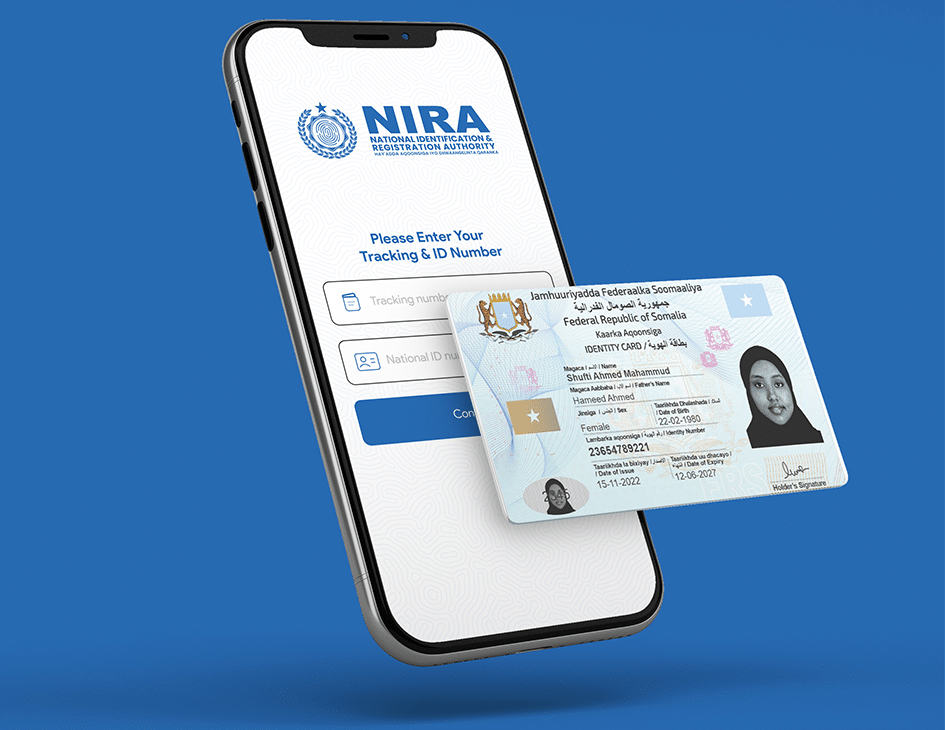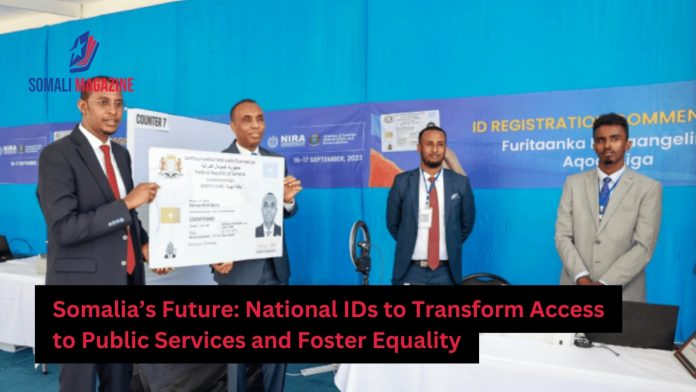Facebook Twitter Instagram Somali Magazine - People's Magazine
The Somali government has introduced a significant policy change, requiring all citizens to possess a national identification card (ID) to access public services. The announcement, made on April 5, 2025, highlights Somalia’s ongoing efforts to strengthen governance, streamline service delivery, and enhance security across the country. This mandate marks a pivotal moment in Somalia’s journey toward modernization and inclusivity in its public administration.
Prime Minister Hamza Abdi Barre unveiled the initiative during a press conference in Mogadishu, emphasizing the importance of a centralized identification system. According to the Prime Minister, the national ID program aims to improve transparency, reduce fraud, and ensure that all citizens can benefit from essential services such as healthcare, education, and social welfare programs. “This is a transformative step in nation-building. A national ID system will allow us to protect citizens’ rights, improve service delivery, and ensure that no one is left behind,” Barre stated.
The initiative, led by the National Identification and Registration Authority (NIRA), will initially target urban centers before expanding to rural areas. NIRA officials outlined a phased rollout plan, prioritizing regions with high population density and significant demand for public services. Citizens can apply for their IDs through a simplified registration process, which involves biometric data collection and digitized records for secure and efficient identification.
Somalia’s new policy comes at a time when the government is striving to rebuild institutions and foster national unity following decades of conflict and political instability. A lack of standardized identification documents has historically hampered public service access and made it challenging for authorities to combat corruption and manage resources effectively. The national ID system is expected to bridge these gaps, enabling Somalia to improve governance and foster trust between the government and its citizens.
The policy has garnered mixed reactions from the public. While many have welcomed it as a much-needed step toward modernization, others have raised concerns about potential barriers to access. Critics argue that individuals in remote or conflict-affected areas may face challenges in obtaining IDs due to logistical constraints or a lack of awareness about the program. Activists have called on the government to ensure that marginalized groups, including displaced populations and nomadic communities, are not excluded from the process.

Human rights organizations have also emphasized the importance of data privacy and security in implementing the ID system. They urge the Somali government to adopt robust measures to protect citizens’ personal information and prevent misuse. “A national ID system is a powerful tool, but it comes with significant responsibilities. The government must prioritize data protection to ensure public trust,” a spokesperson for the Somali Human Rights Association stated.
International partners, including the World Bank and the United Nations Development Programme (UNDP), have pledged support for the initiative, recognizing its potential to drive socioeconomic development. The national ID system is expected to facilitate financial inclusion, expand access to credit and banking services, and empower citizens to participate more fully in economic activities.
As Somalia moves forward with this ambitious undertaking, the focus remains on ensuring equitable access and addressing potential challenges. The government has promised to launch a nationwide awareness campaign to educate citizens about the importance of the national ID and the benefits it brings. Plans are also underway to deploy mobile registration units to reach underserved and remote communities.
The introduction of mandatory national IDs represents a significant milestone in Somalia’s development trajectory. By creating a unified and secure identification system, the government aims to enhance efficiency, accountability, and inclusivity in public service delivery. As the rollout progresses, the policy will likely serve as a litmus test for Somalia’s capacity to implement large-scale reforms and meet the needs of its diverse population.

